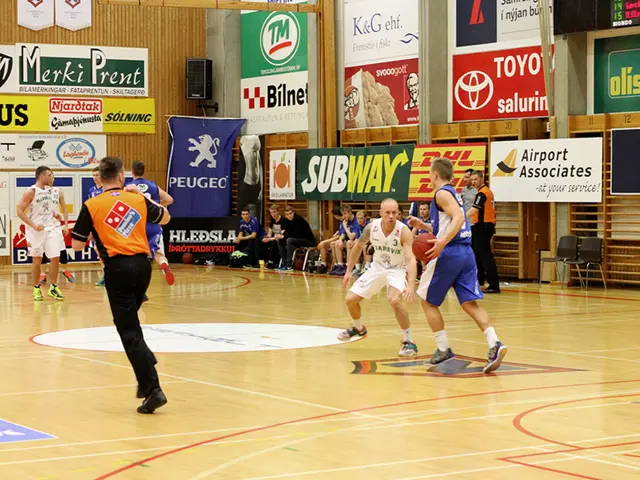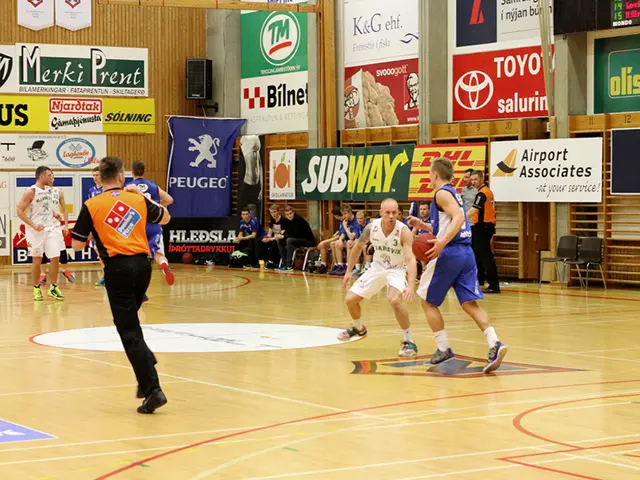Presidential Hopeful Places Confidence in Zema for Enhancing Government Roster
Novo Party Aims to Establish Strong Presence in 2026 Brazilian Elections
The Novo Party, a liberal political force in Brazil, has set its sights on making a significant impact in the 2026 elections. With the pre-candidacy of Romeu Zema, the governor of Minas Gerais, the party is aiming to consolidate as a large party in Brazil, potentially fielding between 30 and 40 Senate candidates.
To overcome the electoral threshold, commonly known as the barrier clause, the Novo Party must either elect at least 11 federal deputies, distributed in at least nine federal units, or conquer at least 2% of the valid votes for the election to the Chamber of Deputies, also distributed in at least nine federal units, with a minimum of 1% of the votes in each of them.
The party believes it already has enough votes and candidates to easily break the barrier clause. New members are welcome to join during the party window in April 2026.
To achieve its goals, the Novo Party has outlined several key strategies:
- Consolidate and Expand Liberal Appeal: The party aims to emphasize its identity as a liberal alternative, focusing on freedom, responsibility, integrity, and youthful dynamism. It plans to capitalize on its growing organizational strength, as demonstrated by the large national meeting with over 2000 party leaders.
- Build a Clear and Distinct Programmatic Platform: The party intends to highlight its economic liberalism and reformist credentials, distinguishing itself from both Lula’s leftist government and traditional conservative parties. It will emphasize fiscal responsibility, modernization, and efficient governance.
- Strategic Alliances and Dialogue: The Novo Party plans to engage in dialogue with international liberal partners and possibly form strategic domestic alliances to increase its visibility and political clout. It also aims to engage with civil society and business groups to build institutional and grassroot legitimacy.
- Mobilize Youth and New Voters: The party intends to invest in youth leadership programs and social media engagement, targeting emerging voters disillusioned with traditional parties.
- Capitalize on Romeu Zema’s Pre-candidacy: The party plans to promote Zema’s image as a successful, pragmatic leader with a track record as governor of Minas Gerais. It aims to use his regional popularity to gain parliamentary seats in Minas Gerais and neighbouring states, building a regional stronghold with potential national scaling.
- Focus on Electoral Law and Campaign Management: The party will prepare to overcome the electoral barrier clause by strategically placing candidates and maximizing votes across multiple states. It will also utilize data-driven campaigns and digital outreach to maximize votes per candidate and for the party list.
- Differentiate from Current Government Polarization: The Novo Party aims to position itself as a moderate and reformist actor, contrasting with the Lula administration’s leftist agenda. It intends to emphasize democratic values and fight misinformation and extremism to appeal to centrist and liberal voters concerned about political instability.
By implementing these strategies, the Novo Party hopes to overcome the electoral barrier clause, establish a solid parliamentary bench, and carve out a significant space in Brazil’s evolving political landscape. The party's ultimate objective is to defeat the PT and free Brazil from Lula in the 2026 elections. It also aims to form coalitions and alliances with other parties to strengthen Zema's candidacy.
The Novo Party, as it seeks to establish a strong presence in the 2026 Brazilian elections, is focusing on policy-and-legislation that aligns with economic liberalism and reformist credentials. This shift aims to differentiate itself from both Lula’s leftist government and traditional conservative parties in the realm of politics.
In line with its strategies, the Novo Party is also engaging in policy dialogues with international liberal partners and forging strategic domestic alliances (politics), emphasizing the importance of policy-and-legislation in their bid to carve out a significant space in the general-news landscape of Brazil.








